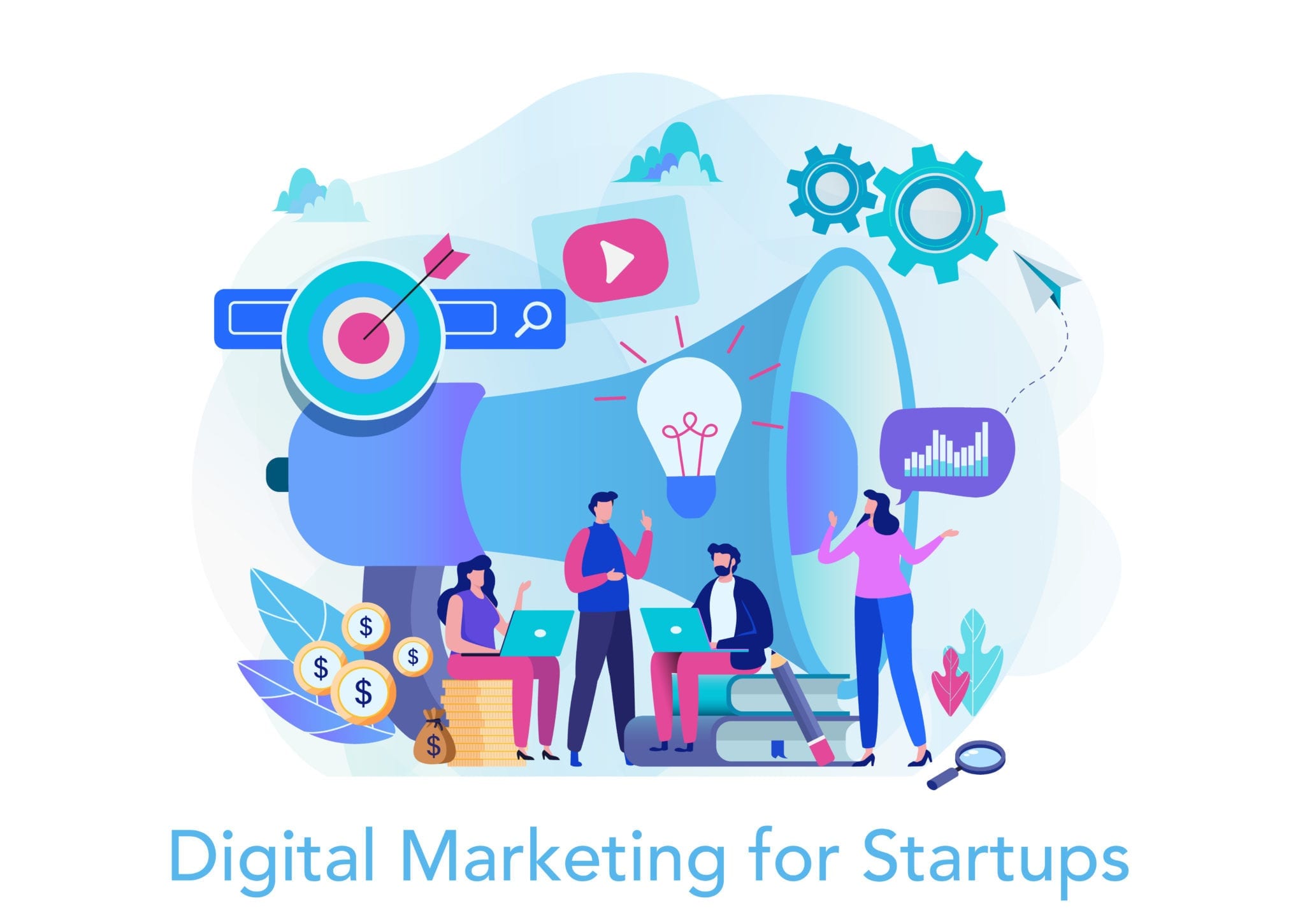Digital marketing for startups simply means creating, cultivating and rekindling relationships.
In traditional terms, Digital marketing is making use of the internet to market your products and services. Some people call it online marketing or internet marketing, some even call it just SEO.
Granted, it’s easy to associate Digital marketing with just one set of activities such as SEO or Social Media. However, the key to a successful digital marketing strategy for startups is being able to understand technologies and orchestrate them to achieve the most important goal:
Making a meaningful connection.
Gone are the days when you can easily buy a domain, call it uberforlaundries.com, prototype your MVP and expect customers to come rushing in. You are competing not only with startups in your local area but now with startups all over the globe.
Technologies (including google) of today are smarter than they were a decade ago, and you wouldn’t expect to rank your startup first with old strategies.
However, it pays to know the basic strategies that encompass the world of digital marketing for startups.
How To Do Digital Marketing For Startups
When building a digital marketing plan for startups, it is important to plan it on a strong foundation. In the next section, I’ve compiled the different digital marketing strategies and techniques you need to know for your startup.
Content Marketing

It all starts with the content.
Content is the fuel of all your digital marketing strategies – call it cliche, but it is indeed the King.
And as a startup, you need to strive to become the king in your niche.
Becoming the king means becoming the goto resource for everything your customer needs to know, sometimes thinking ahead of what your customers might want to know.
Some forms of content include:
- Blog Posts
- Ebooks
- Whitepapers
- Infographics
- Videos
- Podcasts
Why is it important? Content marketing generates brand awareness, increases traffic growth, drives lead generation, and educates customers.
Search Engine Optimization

67% of all the clicks are from the first 5 listings on a search results page
71% of searches resulted in a page one Google organic click.
Now that you’ve created your content, the next step is to optimize your content for the search engines.
Why is it important? When your customers are searching for answers or services on the web, you need to make sure that you appear first in the search results.
Quick tips: You can get started on SEO today by performing thorough keyword research, publishing on a regular schedule, and building links.
Social Media Marketing

Go get the word out!
Social Media Marketing means to promote your brand and content on social media channels.
Why is it important? This practice helps to increase brand awareness, drive traffic, and generate leads for your business.
Some common channels include:
- Snapchat
- Pinterest.
- Google+
Pay-Per-Click (PPC)

Paid search, or pay-per-click (PPC) advertising, refers to the “sponsored result” on the top or side of the search engine results page (SERP). The ads are displayed on the top or side of the page, however, you only pay when your ad is clicked.
Email Marketing

Now that you’ve acquired your leads through a quality, optimized content or through social or PPC ads, the sales process does not end there.
You need to move your leads further down the funnel – as paying customers or promoters of your brand.
Email Marketing is one of the most effective ways to connect with your customers.Remember: All these strategies and tools work best when combined together.
Why Starting Digital Marketing for Startups is Important
Digital marketing for startups is without a doubt, powerful! Everyone owns at least one device, and that alone allows your business to be seen by anyone, anywhere. Even one-man army startups without a budget can make use of digital marketing to connect with their audience.
Other major benefits include:
Targeted Markets
Billboards are dead. Unless you have your ad situated in the center of Paris where people have no choice but to look out the window as they wait for traffic to magically disappear.
However, nowadays, people are always on their mobile phones. One of the most important benefits of digital marketing is that unlike billboards, you can have your product appear in front of the right people; people who are most likely going to be customers of your startup!
Competitive Advantage
Who would have thought we can buy products directly from the U.S? I didn’t.
But Amazon and other e-commerce platforms just made it possible.
Digital marketing for startups allows us to gain a competitive advantage and completely eradicate the barriers of the physical realm. We can easily sell to new markets and save on operating costs.
We can get found faster and connect better. Those who haven’t adopted yet, are bound to be left in the dark. Digital marketing is crucial to the success of today’s startups. And if you’re only focused on Engineering, think twice before it’s too late. Digital marketing, although a full-time job, doesn’t necessarily need to cost you a lot.
Lower Customer Acquisition Costs and Higher Retention
With the competitive advantage and targeted market that digital marketing brings, not only does it allow us to save in costs, but it’s also allowed us to better serve our customers.
Tracking
Unlike traditional marketing, digital marketing allows us to track and measure our marketing activities. With the dozens of tools available in the market, you can easily see which activities are generating the most revenue and driving the most user acquisition.
How to Create A Digital Marketing Strategy For Startups

Creating an extensive digital marketing strategy takes a lot of time and resources.
So here is an action plan containing high priority and urgent items that you could start working on in your startup.
In order to better illustrate the steps, we will be using a fictional startup called Uber for Laundries.
At the end of this section, we should be able to come up with a strategy that allows us to better understand our target audience and come up with a set of actions we can take.
1. Create Your Content Guide (and Setup the Basics)
This part takes the most time and effort. And most startups do not have a lot of resources, especially when still starting out. Naturally, with a small team, you might think it’s impossible to publish regularly.
Although difficult, it’s never impossible.
Creating your content guide could get you to churn out content like a machine. And it doesn’t necessarily need to be a 500-page book.
Here’s what you are going to need to do:
- Create buyer personas – Create a profile of each of your target customers.
- Create your blog – Have each of your founders publish a story each week. Or write an educational post about your latest feature. Your blog could be hosted on medium or wordpress. The faster you get it live, the better.
2. Document Your Strategy
Marketing is all about creating value for your customers, and Digital Marketing for startups is simply marketing using digital tools.
The ultimate goal is to find your customers and discover their problems.
Goal-setting
Build out a dedicated content strategy that results in a strong return on investment.
We need to create three specific strategies: business, customer, and marketing.
But before that, we need to know the following items first in order to create a cohesive online strategy:
- Business Plan – Your business at a high-level
- Market perception – How your customers perceive your business
- Target market – Who your customers really are
- Digital Technology usage – How your customers are using digital technologies
- Channels – What channels you need to build into
Shared Value
The ultimate goal is to create a shared value experience that will bring you positive ROI. This happens when the goals of your customer, overlap with the goals of your business.
Forget about selling a product or service.
Instead, think of the ways you can provide value to your target audience.
Business Strategy
The first strategy we need to build is our Business Strategy for R+ Sports Company.
We need to identify the following:
- Our mission statement
- Objectives
- Value proposition
- Elevator pitch
- This is not a step you should be skipping.
Because this step will allow us to focus our attention and make it easier to look at our customers and marketing strategies.
3. Create the Action Plan
Now that you’ve gained a clear view of your goals and target market, the next step is to create a set of actions categorized according to their priority.
Creating these actions will be straightforward, considering that you’ve already discovered the three different strategies of your company. All you need to do is to look at the table and identify the points of improvement you need to implement.
Creating a strategy may take hours or even days. Every startup will come up with a different one.
But remember, that at the end of the day, your ultimate goal is to create a shared value experience with your target market.
Digital Marketing for Startups: How to Get Started
Setting up a website and blog is easy. And you probably have it already.
In that case, you might even have set up your pages and product page already, but the leads and customers aren’t coming in yet.
First, selling online – especially in today’s digital world and consumers – is different. So you need more than just a website and a plan. Some questions you might be asking:
- How do you rise above the competition
- How to attract leads?
- Ways to increase your annual recurring revenue
- Let’s start with the basics, shall we?
Here are some simple techniques you can start doing to drive customers for your startup.
1. Stop selling
This sounds counterintuitive, but one of the first steps you can take to drive customers is to stop selling – instead, you need to start attracting, helping and guiding your customers in their buying journey.
Unlike traditional marketing, where salesmen directly interact with customers to close a sale, nowadays, the power already lies within the consumer. Customers are filled with so many choices, that in order to rise up above the noise you simply have to give better information and better service.
Consumers don’t want ads they didn’t want to receive in the first place, blasted to their inbox.
The key is personalization. Take note, the digital world is changing, and so are the consumers.
2. Design landing pages that convert
When your lead finally landed on a page on your website, it is necessary to optimize your landing page for conversion, or else your efforts are merely washed down the drain.
Landing pages should:
- Be free from distractions – Remove those menus and emphasize the offer
- Have a clear Call-to-Action (CTA) – What do you want your customers to do? Do you want them to request a quote, a demo, or download a case study your startup recently created? Again, make sure to tailor-fit the page to what your customer needs.
3. Nurture your leads
When you’ve successfully attracted your potential customers with content they need, and a service they want – the hard work doesn’t end there.
You need to close the sale, and if your leads aren’t ready yet, then it’s time you start nurturing your leads. This can be done through properly segmented email sequences, and newsletters that reinforce your value propositions, (again without selling) until the customers are ready to make a decision.
4. Improve your design
If your website looks like that of the dinosaur-era, you better start worrying because you are losing out valuable customers.
Is your website loading slow? Are your images outdated, and do your colors even reflect your brand?
Web technologies are changing fast, and every day, there are improvements and policies rolled out that you should at least be aware of.
If you want to maximize the conversions you make on your website, then consider hiring professionals – be it freelancers or your tech co-founder, but make sure they know their craft.
Because your website is not only a reflection of your brand, but it’s the doorway for your customers to reach you online.
Nowadays, it’s all about making a connection with your customers. The goal is not only to make a sale, but also to make these customers promoters of your brand. Thriving in the digital world takes more than a page stuffed with keywords, but also, a process of helping and guiding your customers on their buying journey. Consumer needs in the digital world are changing, and your business should start listening.
Digital Marketing for Startups: The Right Time was Yesterday
Remember that the true meaning of marketing is all about maximizing relationships. And that the digital marketing tools we use today are merely tools that will help us build and maintain relationships and later on, sales. The key to success, however, is using these tools to make meaningful relationships.




3 Comments
Pingback: How to create a content strategy for your blog - Roselle Ebarle
Nice content! This helps a lot!
Nice content! This helps a lot!